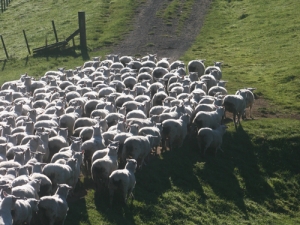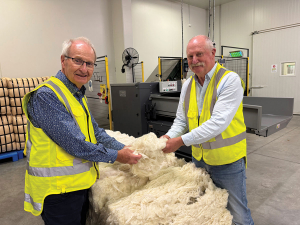A collaboration between New Zealand sheep researchers and Chinese red meat producers will benefit both countries’ farming systems, the academics claim.
Animal scientists from Massey University have recently been appointed expert consultants to the XinBao farm in China.
Professors Hugh Blair, Steve Morris and Paul Kenyon from the university’s International Sheep Research Centre have been visiting China for the last 10 years, establishing relationships with the Chinese Academy of Sciences, Shihezi University staff and more recently XinBao.
On their most recent trip they visited the XinBao sheep farming operation on Xinjiang Production and Construction Corp’s property.
The immediate goals of this farm are to produce one million lambs annually from 500,000 ewes with year-round lambing, and to capitalise on co-products like methane from animal waste and electricity from shed-mounted solar panels.
During the visit the scientists designed a $400,000 research project to collect baseline data, which will allow the assessment of productivity and profitability of any proposed changes to the farming system. Seven research projects are being developed over the next three-six months for which XinBao will contract Massey University’s expertise in sheep production and education.
Blair says the rate of progress has been “incredible” by sharing knowledge between the two countries.
“We are occasionally challenged by New Zealanders who think we are giving away the country’s knowledge in sheep farming,” he says.
“However, we believe the opportunities for NZ to collaborate in Chinese tertiary education and onfarm research provide major opportunities for NZ to learn, improve and share.”
Blair believes the benefits flow both ways. “We are discovering things about indoor sheep farming systems that might have a place in environmentally sensitive parts of NZ.”
As well as environmental benefits, he says there is huge economic opportunity for NZ.
“China is a significant trading partner for NZ and anything we can do to improve our relationship is beneficial. This includes research mentoring and collaboration.
“China will shortly be the powerhouse of science discovery: current projections have China overtaking the US in 5-10 years. Massey wants to be part of that knowledge generation, just as we have been part of Euro-centric knowledge generation for the last 150 years.”
In April 2015, XinBao was granted $2 billion by the Chinese Government to help realise the vision of increased sheepmeat supply as part of its drive to substantially increase national red meat production.



















